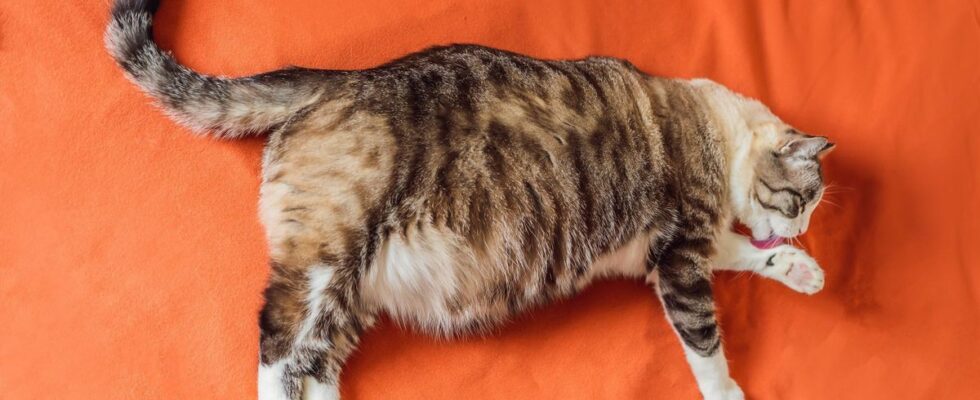Published on
updated on
Reading 2 min.
In recent years, the scientific community has become increasingly interested in the intestinal microbiota. This is because the microorganisms living in our digestive tract are endowed with numerous nutritional, metabolic and immune faculties. To better understand how they work, American researchers have taken an interest in the intestinal flora of… domestic cats.
A research team from Ohio State University in the United States has suggested that domestic cats could contribute to a better understanding of the potential role of the gut microbiota in the development of cardiometabolic diseases, such as obesity and diabetes.Pets share our beds. They eat our ice cream. There are all these things that people do with their pets that show that pets can be a model of natural disease, with environmental exposures similar to those of humans.” said Jenessa Winston, assistant professor of veterinary sciences at Ohio State University and lead author of the study, in a press release.
To test their hypothesis, Jenessa Winston and her colleagues put seven overweight cats on a diet for 16 weeks. For the first two weeks of the experiment, the cats were given commercially available cat food specially formulated for them. They were then given a weight-loss diet for a week, before switching to a low-calorie diet designed to make them lose 1 to 2 percent of their body weight per week. This penultimate phase lasted 11 weeks. After that, the felines returned to their basic diet.
Throughout the experiment, the researchers took fecal samples to see if the cats’ different diets affected their production of short-chain fatty acids. These molecules, produced by gut bacteria when dietary fiber is fermented, are important for metabolism. They provide energy to colon cells, strengthen the intestinal barrier, and regulate appetite. Scientific studies suggest that they may also be involved in preventing diseases such as obesity, diabetes, and inflammatory bowel disorders.
NO to diets, YES to WW!
Studying cats to better help humans
Jenessa Winston and her colleagues found that cats produced more propionic acid when they lost weight on a low-calorie diet. This type of short-chain fatty acid has previously been shown to regulate appetite, reduce fat accumulation, and protect against obesity and diabetes in some mammals.
The researchers explain in their studypublished in the journal Scientific Reports, that the increase in propionic acid is associated with the proliferation of Prevotella 9 copri, a bacterium that plays a key role in intestinal health.When cats are put on the specially designed weight loss diet, propionic acid rises and stays high, then drops again when they return to their regular diet.“, explains Jenessa Winston in the same press release.”This shows that when we restrict the caloric intake of obese cats, we can modify their microbial ecosystem.“.
In other words, it appears that the set of bacteria, viruses, parasites and non-pathogenic fungi that make up the intestinal microbiota of domestic cats plays a determining role in the development of obesity. Studying the intestinal flora of felines could therefore allow us to access a better understanding of the causes and biological mechanisms leading to this complex chronic disease, which affects nearly 16% of the world’s population.
